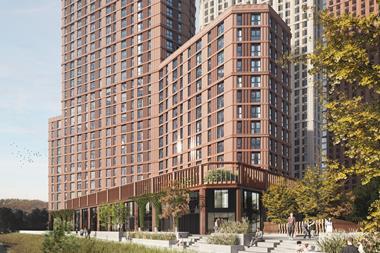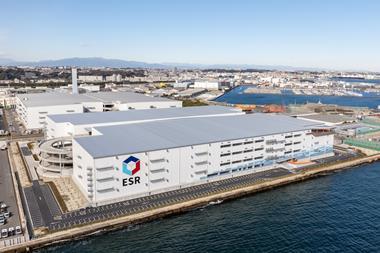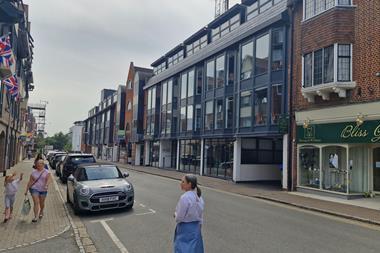UK-listed property company Hammerson has sold close to a £1bn (1.18bn) of assets and has had £828m wiped off the value of its portfolio as it repositions itself amid weakness in the retail sector.
The owner of large shopping centres announced that it had sold £542m of assets in 2019 and £433m so far this year, including a £400m portfolio of retail parks.
As a result, the retail-focused real estate investment trust (REIT) said its pro forma net debt had been reduced to £2.4bn, below its £3bn target, with headline loan to value ratio of 35%.
Its dividend is to be reduced to a “sustainable level” from 25.9 to 14p, removing the direct link between earnings generated and dividend paid.
Pressure on Hammerson’s net asset value reflects a wider ongoing issue for UK REITs exposed to high levels of retail and reflect investor caution over the prospects for physical retailing, despite the fact that Hammerson reported robust occupancy rates at 97.2%.
Most UK REITs and major shopping centre developers are looking to ‘densify’ their sites, adding other uses such as leisure, offices, residential and healthcare to their malls. These either replace, are adjacent or above the retailing, adding additional income, value and footfall.
Hammerson confirmed planning approval for mixed-use developments in Birmingham, Leeds and Dublin, totalling 176,000sqm of commercial space and 1,400 homes.
The company also increased its exposure to designer outlet developer VIA Outlets by increasing its stake in its joint venture with APG to 50%. The specialist division has remained a strong performer in Hammerson’s portfolio.
David Atkins, CEO of Hammerson, said: “We have taken decisive action over the past 12 months to reduce debt and significantly reshape the portfolio. Against a challenged retail and investment backdrop, we have exceeded our 2019 disposal target, exited the retail parks sector as we said we would and reduced debt by a third.
“This delivered nearly £1bn of transactions in the process. With the outlook for the UK retail market remaining uncertain, we believe we should maintain our focus on reducing debt during 2020.”
He added: “The magnitude of the challenge facing UK retail is significant. However, as brands look to optimise their store estates and strike the right balance between online and physical retail, the best destinations continue to be highly relevant – this is highlighted by the rise in visitor numbers across all our regions.”


















